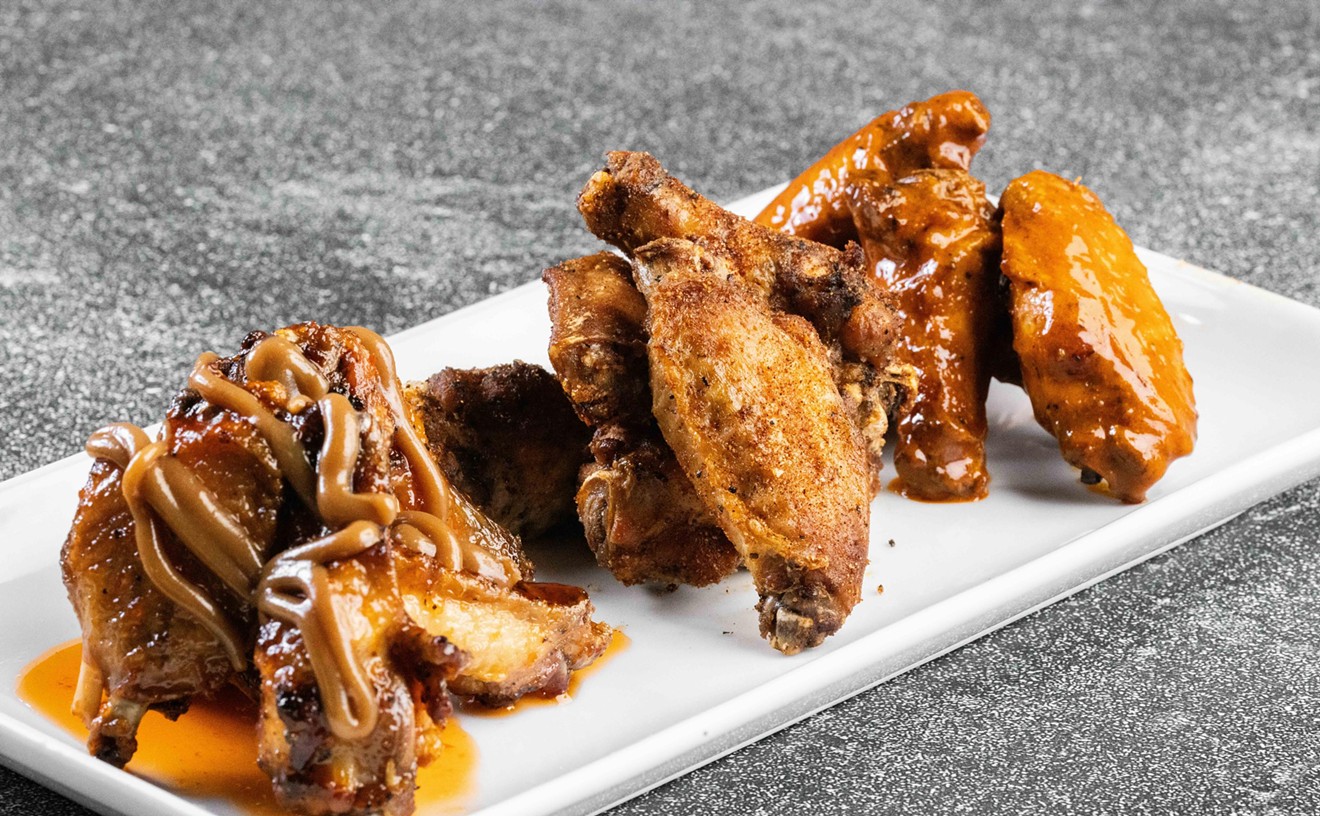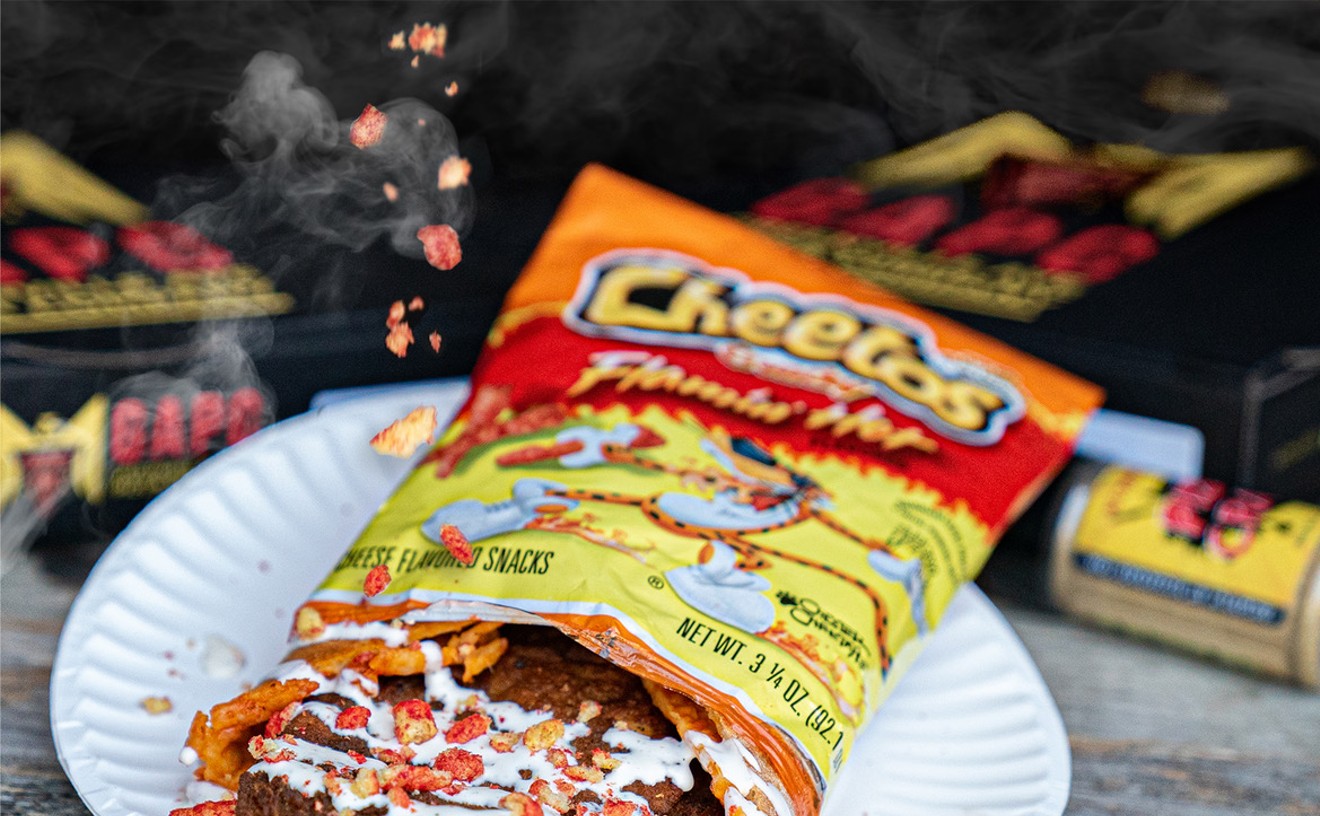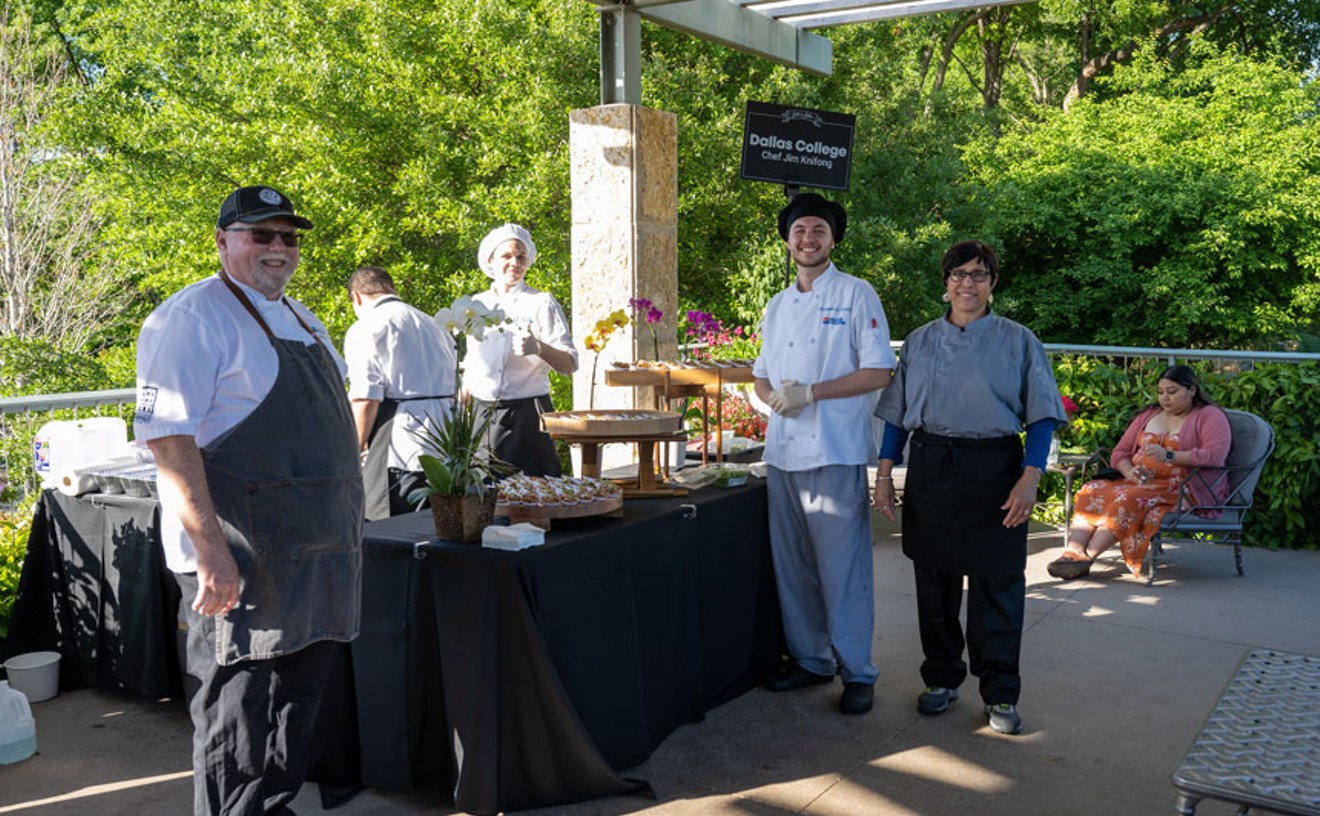Kent Rathbun opening a down-home Southern kitchen is a lot like asking an accomplished concert violinist—Joshua Bell, say—to play a fiddle tune. He can get all the notes right and yet...
I mean, there's good old-fashioned fried chicken, sweating inside a crunchy, double-dipped batter, waiting to burst forth at the very first bite. And then there's Rathbun's version—tender and juicy, certainly, but just barely cased in a spotty, fragile shell. Whereas drumsticks served in church basements throughout the South stand on their own, Rathbun's chicken is so desperately dull it craves the puddle of pepper-maple gravy sloshed underneath.
His kitchen dresses standard biscuits and gravy with a scattering of shrimp, an interesting idea bridging a couple of regional traditions. One can easily imagine how dense bread, hearty gravy and sweet shellfish could prove compelling, and the flavors roll across the palate easily at first. Soon, though, and for the rest of the dish, another tradition takes over. Salt by the handful unravels every bit of effort the great chef's kitchen put into this dish—unless, of course, they intended it for an early crowd. Stop by Rathbun's Blue Plate Kitchen shortly after it opens for the evening, and it's as if you've stumbled into a Cocoon reunion party, held every day before 6:30 p.m. Somewhere past the age of 60—perhaps earlier—our perception of taste begins to change, becoming more or less sensitive. To counter this, chefs must strike a dreadful balance between thinning flavors down to the barest or ramping one spice up so much it easily dominates, so I wondered if the restaurant had prepped for a particular set of guests.
If you aim for a later arrival, though, consider this parallel to the Joshua Bell conundrum: Plunking a "blue plate" restaurant at the edge of Highland Park is a lot like corporate executives ditching perks and bonus plans for the duration of our nation's economic troubles. For a short time, they get to share the experiences of common millionaires.
And let me tell you, they have a hard time coping. To my left one evening, a guy—one must assume from the careful Trent Lott part in his hair and fitted shirt—occupied about five minutes of a waiter's time with all manner of picky questions about Rathbun's trout, starting with "how big is it?" to "how is it cooked?" and so on until I lost interest. To my right, the young Trent Lott-coiffed, fitted-shirt-wearing sons of a couple forced another server to endure a lengthy interrogation that began rather vaguely. "I've heard a lot about locally grown foods, can you explain?"
Damn, these people are precious. Of course, Rathbun brings it all on himself, first by parking a "poor folk" restaurant in this particular neighborhood, then attaching the right buzzwords—things like local and seasonal—above the door. But the waitstaff at some point must contemplate mass homicide.
I know I did.
But that pervasive sense of unease that surrounds the gentry when dining on peasant food is difficult to shake. Conversation levels are more hushed than normal, the posture of guests stiff and awkward, as if ordering catfish is the act of wicked and dirty men, the nameless masses who fill cubicles and drive around in used cars.
Maybe it's a vibe only outsiders recognize. In one of Bill Mauldin's Willie and Joe cartoons from World War II, two USO starlets arrive at a rear echelon depot, dozens of miles from any danger, and say "Wow, the front lines"—that's the vibe, a set of people safely beyond the reproach of poverty, glancing at biscuits and gravy, fried chicken, black-eyed peas and catfish, thinking, "Wow, just like rural Arkansas."
It has the feel of guests slumming in a beautifully appointed space owned by one of the city's top chefs...only the chef struggles to truly re-create country dishes.
Trout in a pecan crust? Hardly diner fare, although the preparation does sink to the blue-plate level. Black-eyed peas? At $7 for a terrine the size of one handful, the kitchen is really gouging its tourists. The pot roast—well, you're better off buying a ready-to-go tin from the grocery store.
Fortunately some dishes truly stand out. The catfish, for instance, carries a hint of muddy flavor not generally found in farm-raised stock, most of which presents an irritatingly clean this-could-be-tilapia taste. This soiled base finds something extra from a crackly cornmeal and dry mustard crust, pulling the rougher edges of the spice down to the point where fish and seasoning ooze into a scale, rising and falling, of rustic notes, succumbing at the same time to its hot and shrill nature.
Now this is what you expect from a team bearing the Rathbun name, the ability to take a once-scorned bottom-feeding fish and coax it to a level where critics can legitimately use words such as "harmony" and "complexity." (And the catfish entrée comes with a pot of black-eyed peas included, making it a real steal). Their South of the Border Caesar salad shouldn't, by rule and temperament, share the emperor's name, but it is one hell of a pile of greens nonetheless. Parched corn, toasted pepitas and crumbles of that wonderfully chewy cotija turn potentially mundane leaves into a carnival. And their take on macaroni and cheese is hardly pedestrian, featuring artisan cheddar and two al dente pastas in one tart, smoky bowl.
Well, al dente on one occasion. Another time they allowed it to scorch.
It's not the vibe, not the concept that ultimately drags Rathbun's Blue Plate Kitchen to the middling ranks, but those nagging faults. One night our waitress asked for an ID—dry area, she explained—took drink orders from me and a male friend, leaving his wife and little girl hanging. If fact, they settled for water the entire meal. The next time, service was spot-on professional, despite our person working with a trainee. Which brings up another issue: Presumably someone tasted the crab gratin before agreeing to place it on the final menu, right? So why did they fail to notice the keenness of cream cheese, no matter how artisanal, to dominate anything in its path? Sure, the pot contains bits of shellfish meat and spinach, but they project nothing but texture into soupy spoonfuls of tart, tangy, sour cheese. It's blasphemy to waste crab in such a manner. Indeed, if there were a culinary heaven, St. Escoffier would dump this dish over Rathbun's head and cast him down there, toward the fiery pits stoked by whoever has done the greatest public disservice to cooking. Al Roker, perhaps, or Ronald McDonald. The kitchen at least acknowledges their failure by handing out a tiny bottle of Tabasco with each crab gratin order, as if to say "we made this by hand, but only a commercial product you buy at the grocery store can save it."
Like I said: crab, cheese, a crispy potato crust—all the right ingredients, but one sour dish.
Rathbun’s Blue Plate Kitchen 6130 Luther Lane, 214-890-1103. Open 11 a.m.-2 p.m., 5-10 p.m. Monday-Thursday, 11 a.m.-2 p.m., 5-11 p.m. Friday-Saturday. Bar menu served 2-5 p.m. Monday-Saturday. $$$









